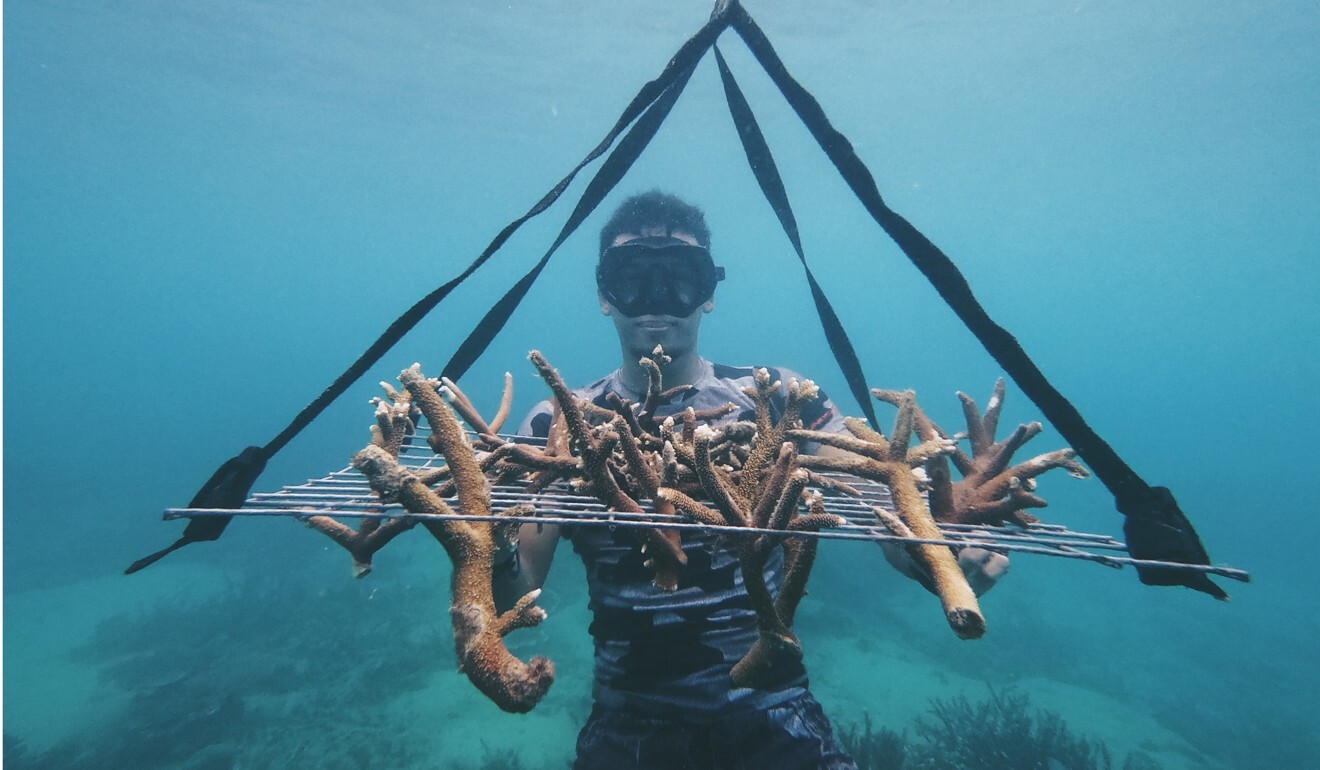
Malaysian fashion labels go back to basics – T-shirts made from organic cotton – to create a sustainable future
- Scuba-diving friends in Malaysia set out to make marine conservation cool by selling minimalist T-shirts and using part of the proceeds to fund coral replanting
- Founders of another label, Spheraco, couldn’t find affordable, sustainably made organic cotton T-shirts locally, and decided to produce their own

Fashion-based social enterprises are nothing new. Back in 2006 American company Toms pioneered the then-revolutionary one-for-one concept, giving a pair of shoes away for every pair bought, and since then, purpose-driven brands the world over have adopted similar concepts, pledging portions of their proceeds to charitable and environmental causes.
To Southeast Asians, some of these charitable causes can seem physically distant and foreign in purpose, but local brands are beginning to change the way the region looks at purpose-driven fashion and what it can do – by serving causes nearer to consumers’ hearts.
Social enterprises such as Earth Heir and Tanoti Crafts work with underserved Malaysian artisan and refugee communities; Real Material channels a set portion of the proceeds from sales of its natural, sustainable fabrics to reforestation in Malaysia. These brands are gaining a foothold among a more aware, activist youth who want to know that the money they spend on new clothes is going to a good cause.
One of the past year’s most interesting launches is Sea Bells. The brand sells just one thing: minimalist T-shirts, but everything from the shirts’ production to how the proceeds of their sale are used has been designed to create the greatest ethical impact.

Every customer who buys a Sea Bells T-shirt becomes the adoptive parent to a piece of rehabilitated coral that the Sea Bells team replants in an ocean nursery off the island of Tioman in Malaysia.
Tioman is a popular diving destination in the region, known for its beautifully clear waters and stunning sea life, but the coral reefs have seen significant damage from bleaching and tourism. Sea Bells hopes to reverse this damage.
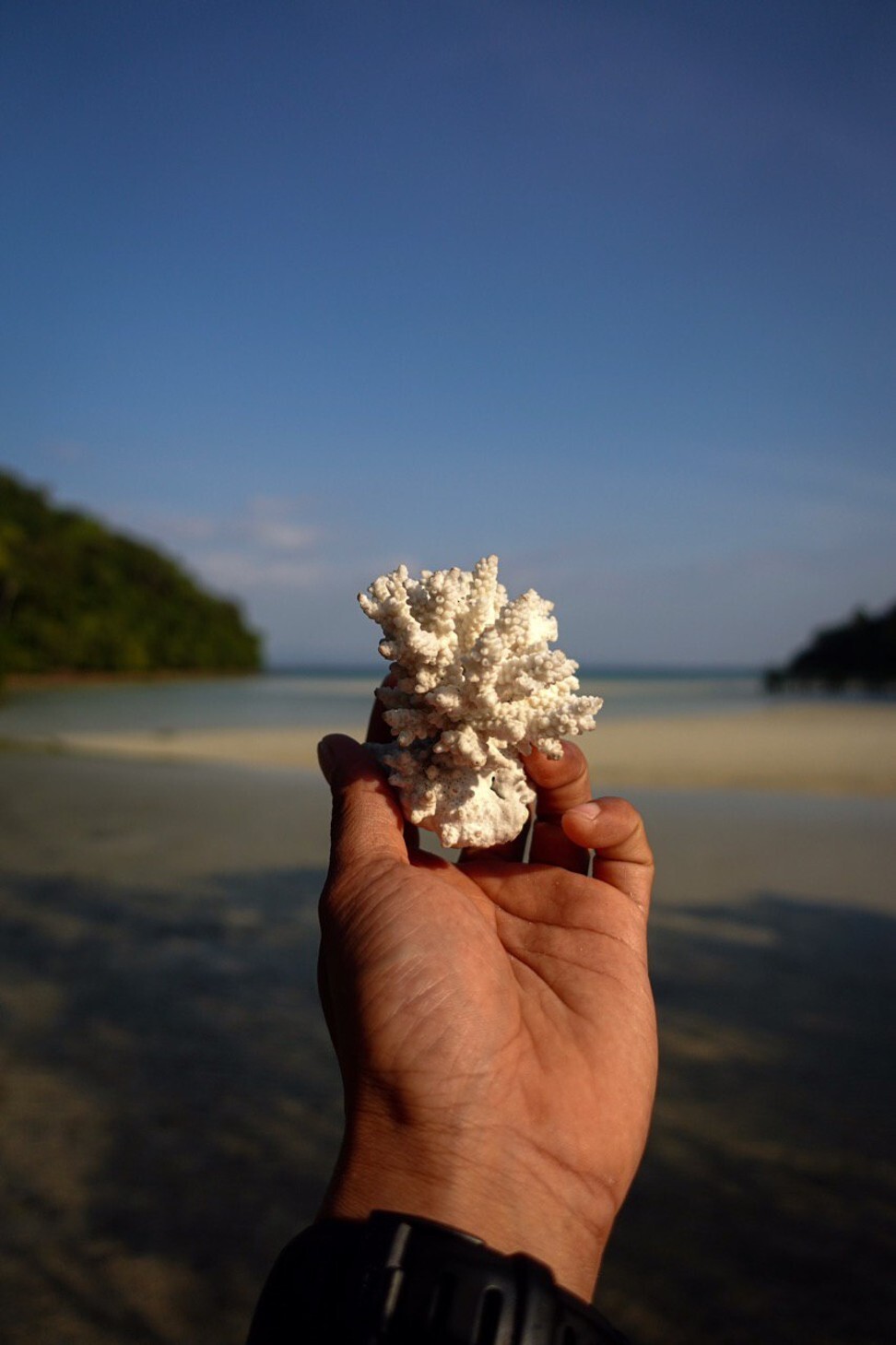
It works with Tioman-based NGO Rumah Hijau to manage a coral nursery system that rescues damaged coral pieces, nurses them back to health and replants them.
Looking after the ocean comes naturally to co-founders Harris Hisham and Aqhari Afiq, scuba diving professionals who spend as much time in the sea as they do on land.
“We have always been passionate about protecting our ocean,” Hisham says. “That’s why we got into scuba diving in the first place. But after so many years, we felt that it was time for us to do something bigger than just educating, we have to take action and make a change.”
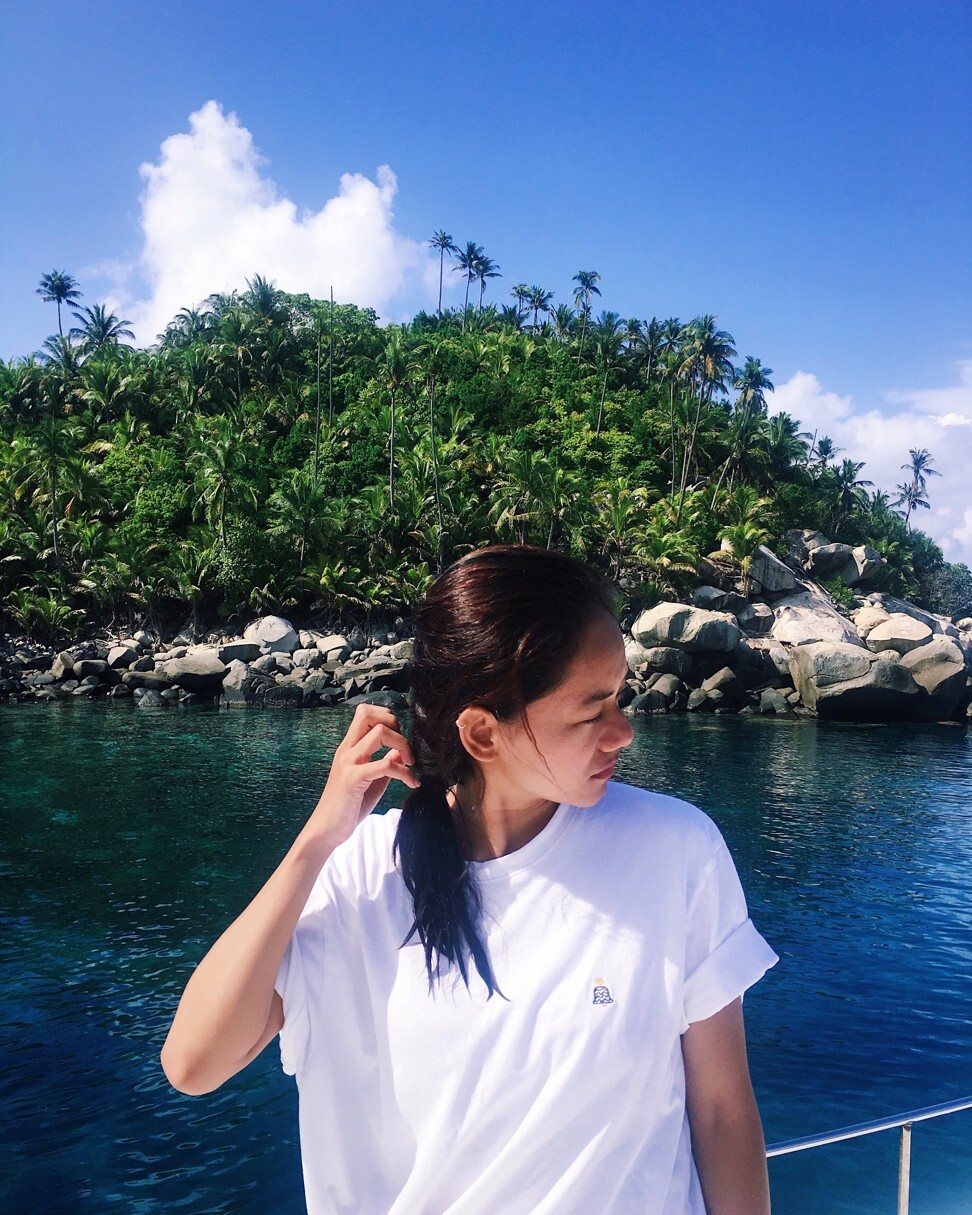
They and a friend, Suzie Zaharuddin, got together to set up Sea Bells.
Hisham knew there would be unique challenges to pushing their vision. “I see a lot of organisations out there that promote coral conservation but what I had in mind was, how do I make coral conservation look cool and trendy?”
The team’s end goal was protecting Tioman’s reefs, but they weren’t willing to cut any corners to get there. “We needed to find suppliers and distributors that sourced their products ethically. That was hard in Malaysia, because there are still many out there who don’t understand about ethical production.”
Eventually the team found what they were looking for. “Our organic cotton is sourced from small marginal farmers in four rain-fed regions in India. There is no child, forced or cheap labour involved,” Hisham says.
“Organic cotton causes less harm to the environment compared to conventional cotton. Producing one normal cotton T-shirt requires three years of an average person’s drinking water!”
Thus far the team has successfully replanted more than 100 corals in the Tioman nursery, offering tangible proof that their customers’ spending habits can directly benefit the environment.
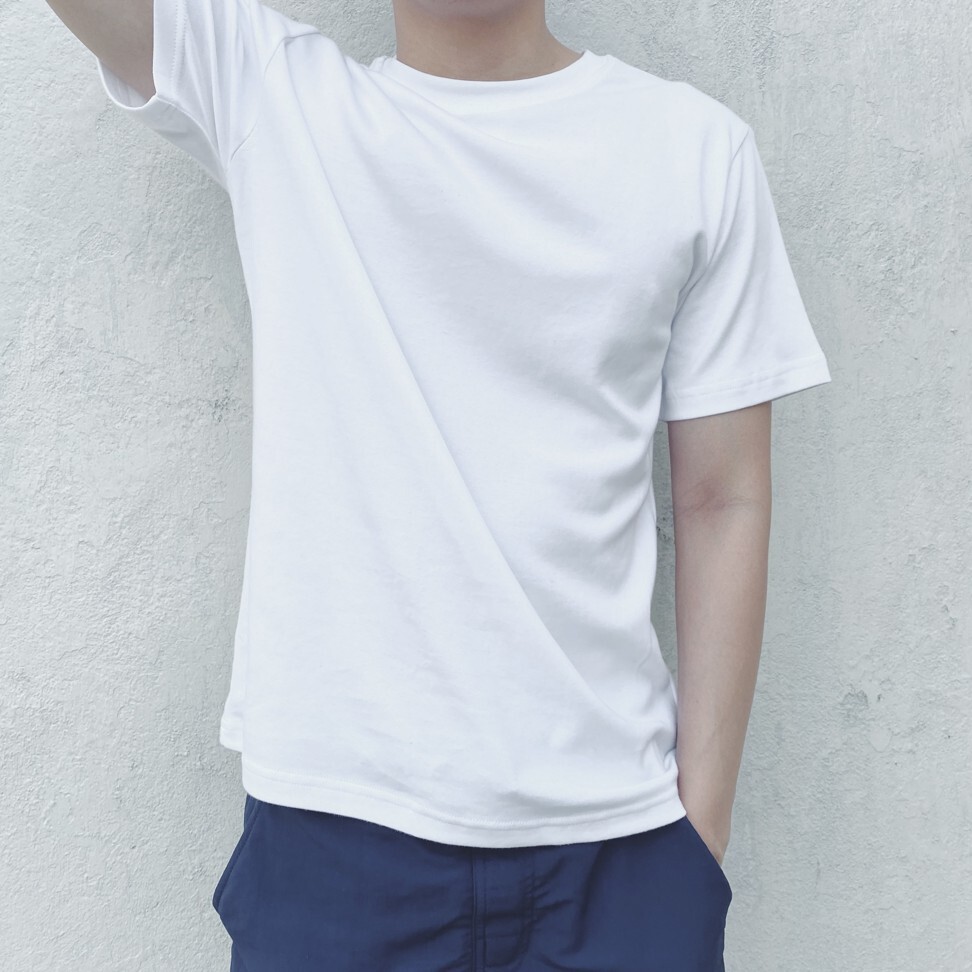
Sea Bells T-shirts aren’t the only ones making a splash on social media. New brand Spheraco launched recently, and also with a single product: the perfect white tee.
“When we wanted to make the shift from fast-fashion to sustainable-fashion consumers, we came across many good overseas sustainable brands online, especially in Europe and the US,” Spheraco co-founder Hooi Chin said. “However, the price was not affordable for us, and there were only a few local brands selling sustainable clothes at that time.
“That gave us the idea to start up our own sustainable label to provide an alternative for Malaysians, with better quality and lasting sustainable basic wear at an affordable price.”
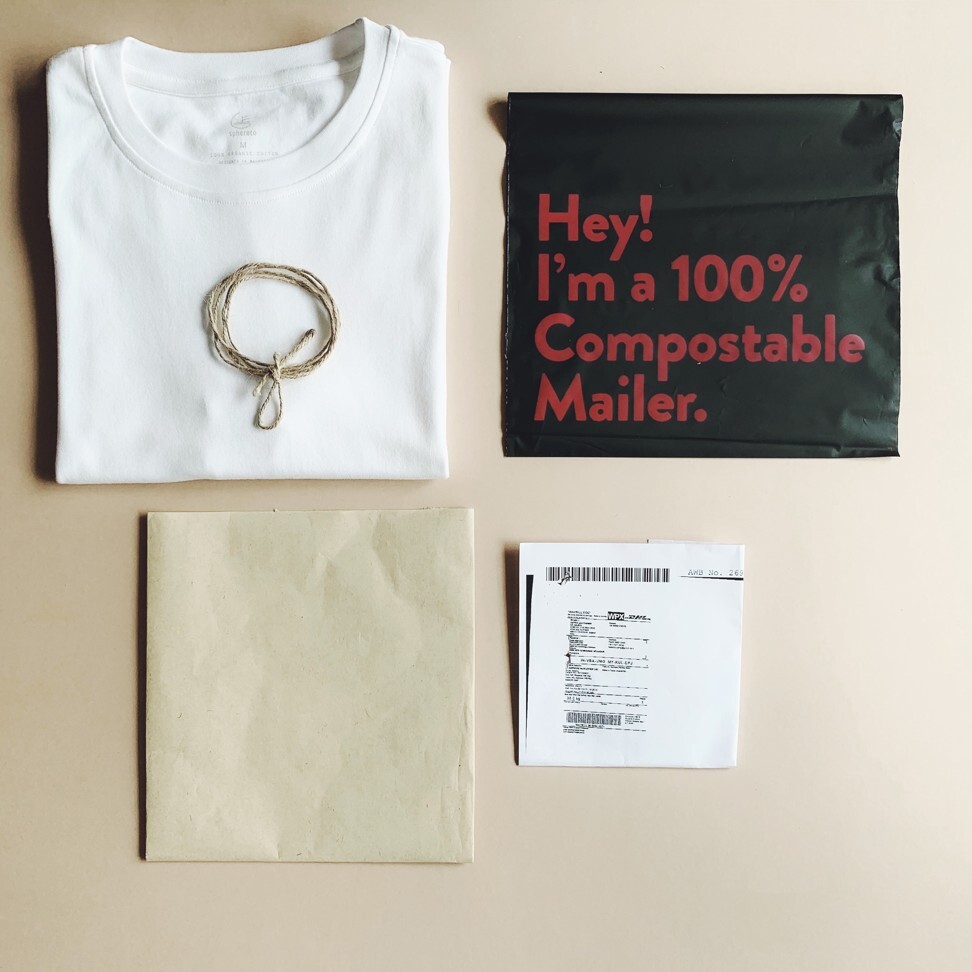
Like that of Sea Bells, Spheraco’s production process emphasises ethical practices from beginning to end. Its T-shirts are made from Global Organic Textile Standard certified organic cotton, a point its founders weren’t willing to compromise on.
“We spent quite some time on sustainable textiles research and getting the GOTS certified textile because we really wanted to stand firm with our principles from the start,” says Chin. “It would be way more easy if we didn’t insist on certified textiles, but we truly believe with the global leading textile certification, our customers can enjoy the clothes without sacrificing the environment and labour behind them.”
The T-shirts are packaged in minimal-waste packaging made of compostable and recyclable materials.
Spheraco has a new line of products due to launch soon, with a focus on wardrobe staples and capsule classics.
The two brands are part of a generation of fashion and lifestyle brands committed to using business to better the environment, and consumers have responded positively to both.
After all, who doesn’t want to adopt a piece of coral in the South China Sea? And who isn’t invested in finding the perfect white T-shirt, with green and exploitation-free credentials to match?